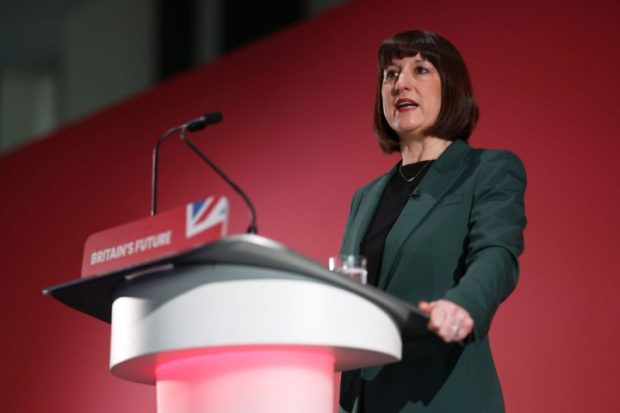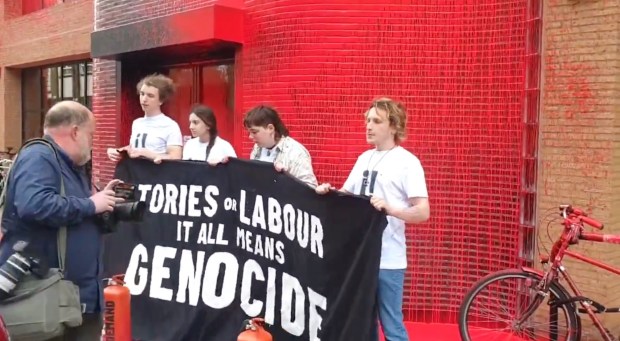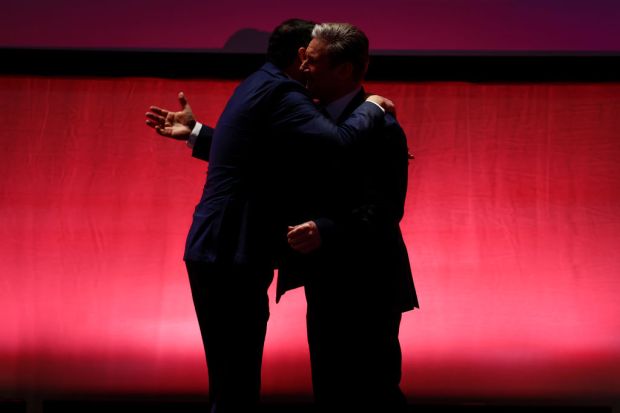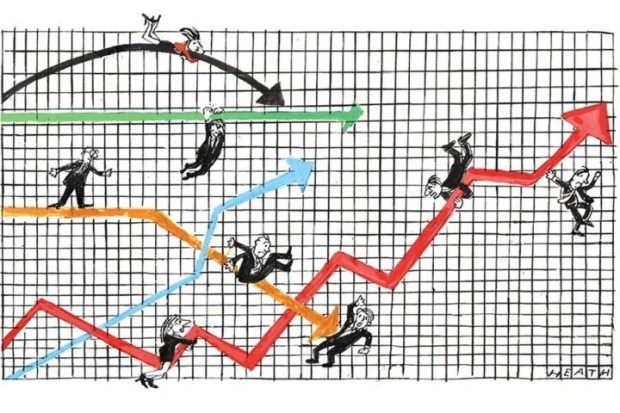Rachel Reeves’s speech at Labour party conference was an attempt to show how the party’s economic strategy differs from the Tories. Oddly, the shadow chancellor decided to do this by cherry-picking the showstoppers from both Liz Truss and Rishi Sunak’s highlight reels.
Reeves’s accusations were numerous, though predominantly levelled at Truss and her disastrous 49-day premiership. ‘When you pay fast and loose with the public finances’, she said, ‘it’s working families that pay that price’ – a sentiment that no doubt resonates with the many households that were acutely affected by the surge in mortgage costs last autumn. The shadow chancellor repeated one of Labour’s favourite, if not misleading, claims that Truss and her chancellor ‘crashed the economy’. This is a fairly easy one for the government to refute: expectations for borrowing costs surged and the pound tumbled, but no recession was triggered by the mini-Budget. Some of her other points, however, will be much harder to rebut. ‘Growth weak, wages flat, taxes up, the price of energy up, the price of the family food shop up.’ Apart from a recent uptick in wages, her list hit on every economic vulnerability the Tory party faces.
Yet it was almost within the same breath that Reeves was lambasting the former prime minister – ‘Liz Truss may be out of Downing Street, but she is still running the Conservative party’ – whilst also adopting her core strategy of pivoting towards economic growth. ‘In contrast, Labour’s defining economic mission is to restore growth to Britain’, proclaimed Reeves – not too far off the previous government that gambled the whole house on a ‘Growth Plan’.
Reeves is using the language of fiscal responsibility from the outset
How does Labour plan to rev up the economy? Again, the answer sounds uncomfortably familiar: with government borrowing. ‘You cannot tax and spend your way to economic growth’ – a statement that is no doubt true, also a near copy-paste of Truss’s comments to Keir Starmer in September last year. Labour’s answer is to get business more interested in Britain, by increasing the amount of capital investment flowing into the country, to the tune of an additional £50 billion every year. But its plan to attract that investment is to ‘de-risk’ investment by making the taxpayer liable, too – pledging that every pound put into the party’s proposed ‘national wealth fund’ will go alongside three pounds of private investment.
To Labour’s credit, their plan to borrow for investment (primarily in energy infrastructure, but for other building projects too) is different from Truss’s agenda last year, in that Reeves insists no money will be borrowed for day-to-day spending, and debt as a percentage of GDP must still be forecast to decline over the course of the parliament. But as Truss learned the hard way last year, borrowing large sums of cash to indicate to business a brighter future is ahead doesn’t have the same lure it used to – and Reeves did little to provide reasons as to why her strategy would go down better with the markets than Truss’s did.
Her answer, perhaps, might be in the signalling. Unlike the former chancellor Kwasi Kwarteng – who only started talking about spending restraint when the mini-Budget was being torn apart – Reeves is using the language of fiscal responsibility from the outset, insisting that Labour will approach the public finances with ‘iron discipline’. Here, she is tapping into Sunak’s greatest hits. Reeves insisted that Sunak ‘hand the chance to denounce the politics and the policies of Liz Truss’ at his own party conference and failed to do so – a claim that is unlikely to pack the punch she’d like, not least because Sunak ended up in No.10 because he was a minority voice last summer warning about the consequences of fiscal loosening.
Reeves has also picked up the language of tax cuts from Sunak, insisting she ‘wants them to be lower’ but can’t help but propose more. While Starmer and Reeves have clearly laid out what taxes they won’t hike if in power – including income tax, and a wealth tax has been ruled out too – Reeves rattled off plenty of ideas for tax grabs this afternoon, including the resurgence of some kind of digital sales tax, with focus on the ‘online giants’ who they want to see ‘pay their fair share’ (this could be expressed, instead, as a tax on the Amazon customers who need baby bottles or medical supplies shipped express to their front door. Reeves also called for a ‘proper windfall tax,’ suggesting again that the effective 75 per cent tax rate on the big energy companies right now is not high enough (Labour has not yet stated just how high they’d take this figure).
And Reeves confirmed an additional tax today on overseas buyers looking to purchase a home in the UK, implemented through a stamp duty increase. It’s an odd move for a shadow chancellor who likes to emphasise the housing crisis and who pledged today that Labour is the party with the vision to rebuild Britain’ – not least because stamp duty is one of the most distortive taxes, further clogging up the housing market.
But Reeves was not just recycling some of her opponent’s language and ideas today; she also dug up some of the ideas her party has been pushing for a decade, including plans to ban zero-hours contracts and further divert decisions about the minimum wage away from the Low Pay Commission and towards politicians instead.
Reeves is likely to get away with cherry-picking from the Truss and Sunak playbook – not least because, despite all the promises made to grow the economy, no one (so far) has managed to do it. This gives Labour the opportunity to present the idea of growth as a new, and crucially, somewhat different offer from the Tories. But for a speech that was supposed to show off Labour’s fiscal credentials, there was an awful lot of borrowing and taxing in there – the consequences of which voters will be mulling.
Got something to add? Join the discussion and comment below.
Get 10 issues for just $10
Subscribe to The Spectator Australia today for the next 10 magazine issues, plus full online access, for just $10.





















Comments
Don't miss out
Join the conversation with other Spectator Australia readers. Subscribe to leave a comment.
SUBSCRIBEAlready a subscriber? Log in